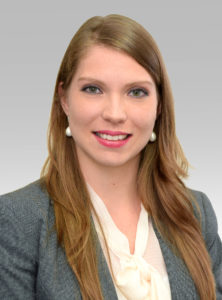Intellectual Property in Regulated Markets II in El Salvador
On the previous IP News edition were analyzed the particularities that occur during the Health Records of pharmaceutical products, and their involvement with El Salvador’s Trademark Act. In this edition is covered the Intellectual Property in Regulated Markets, specifically regarding fertilizers and foods in El Salvador.
On the particular case of Fertilizer Registration, Intellectual Property Law leaves its mark as the Central American Technical Bylaw 65.05.54:15 (hereinafter referred to as RTCA 65.05.54:15) establishes that:
1) The registration of a fertilizer may have several trademarks.
2) No trademark corresponding to the chemical or common name of the product’s components, may be used.
3) The Regulatory Authority will not grant the registration of a fertilizer for agricultural use when the trademark:
- Includes partially or completely the composition, and this one does not match with the declared on the Composition Certificate.
- The trademark induces to confusion or does not correspond with the characteristics of the fertilizer to be registered.
Regarding the first point, the possibility of admitting the use of several trademarks corresponds to the economic freedom. Regarding point 2, we see this prohibition corresponds to what in Trademark Law is known as a “term of common use”; which registration is not allowed, since anyone may use it in commerce, and therefore it is not possible to grant exclusiveness over the same to one person only. Finally, prohibition explained on point 3 corresponds with the prohibition found in Article 8, letter “i” of the Law on Trademark and Other Distinctive Signs, as an attempt to protect the consumer public from being deceived by the use of terms in the trademarks that coincides with the products’ nature, qualities, quantity, among others.
Finally, food regulatory legislation does not escape from being affected by Intellectual Property Law. RTCA 67.1.02:10 establishes that food to be registered may include a fantasy name. This “fantasy name” is what in Intellectual Property is known as a trademark. In the practice, at the moment of registering food and identifying its trademark, the regulatory authority tends to indicate that the trademark that corresponds to the product is what in Trademark Law is known as a “House Mark”, when the fantasy name is a trademark itself, and nothing proscribes that a product may have 2 trademarks, in virtue of economic freedom. Additionally, RTCA 67.01.31:07 establishes the post-registration procedure of addition of trademark.
The aforementioned are examples of how Intellectual Property Law influences the regulatory legislation of fertilizers and foods in El Salvador. Although their areas of protection differ, both branches of Law are essential for the practice of commerce, and we have seen with the previous comments how one affects the other, and occasionally it is necessary to use the other to reach its objectives.
 Fermina Bolaños Meardi
Fermina Bolaños Meardi
Associate
García & Bodán
El Salvador

